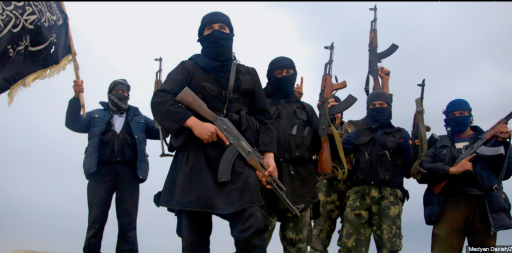Iraq the Model
I was always skeptical of the idea that democracy in Iraq would be so attractive in the Middle East that it would spread virally throughout the region. However, Iraq does serve as a useful model to its neighbor, Iran, in one particular and the editorial board of the Christian Science Monitor is performing good service in reminding us of that:
Ever since the 1979 Islamic Revolution, the weakest reed in Iran’s complex system of government has been the claim of a supreme leader with absolute political authority based on his Islamic credentials. It is an idea not accepted by the 90 percent of the world’s Muslims who are Sunni. And it is rejected outside Iran in other Shiite strongholds, such as in Hezbollah-controlled areas of Lebanon and in Iraq.
Known in Arabic as velayat-e motlaqeh-ye faqih (guardian or the jurist), this concocted religious doctrine, enshrined in Iran’s Constitution, was recently rejected by a leading Iranian cleric, Ayatollah Hossein Ali Montazeric, who was once the designated successor to the founder of the Islamic revolution, Ayatollah Ruhollah Khomeini.
[…]
But the debate over a supreme leader may not fade. There are signs in Iran of increasing popularity for Ayatollah Ali Sistani, the leading Shiite figure in Iraq. Since the 2003 US invasion, he has supported a democracy that is run by secular leaders and inclusive of all faiths. (The Shiite spiritual leader in Lebanon, Muhammad Hussein Fadlallah, also does not see himself as a political leader.)
An Iranian by birth, Mr. Sistani holds much sway over the clerical establishment in Iran’s most religious city, Qom. And he lives in the Iraqi city of Najaf, the most holy of Shiite sites and a popular pilgrimage for Iranians.
Ali Sistani is deserving of praise as the Monitor reminds us. His example and teaching stand in stark opposition to Khomeinism and as such he presents a rebuke and threat to the Iranian ruling oligarchy.




Michael Rubin claimed last week in the L.A. Times that “the majority of Iran’s grand ayatollahs oppose the concept of theological rule. Not by coincidence, the majority are now in prison or under house arrest.” There is a base of religous opposition to the regime.
Also, Ahmadinejad’s brand of folk religion, with the claims that the hidden Imam is directing the country’s affairs, and bathing him in light, are offending other clerics as well.
You forgot to provide a link to the Monitor article, Dave, but I want to throw a little “anal retentive” snark out there.
The supposed Arabic quote strikes me as incorrect, at least as far as it being in Arabic. While I don’t claim fluency, I’m still pretty familiar with the language, as well as having a bit of Farsi understanding. Since there’s no “v” equivalent in Modern Standard Arabic (there may be a dialect with it, but I’m not familiar with one), and the tendency in Farsi (but not Arabic) to end words in “-e” or “-ye”, I’d be willing to bet that the quote is in Farsi, not Arabic.
I don’t know what that says about the rest of their article, but I’m pretty sure they missed the boat on that point.
Here ends the linguistic nerd portion of your comments. We return you to your regularly scheduled program.
Thanks, Boyd. Fixed.
I speak several languages but neither Arabic nor Farsi is one of them. I suspect you’re right. I just quoted; it’s the Monitor’s flub.
Yep, the Monitor erred in calling it Arabic: it’s certainly Farsi.
Boyd: North African dialects of Arabic (i.e. ‘Maghrebi’) often have a ‘V’ sound, indicated by an extra dot under the letter ‘fa’. There are so many loan words from French that they had to make some adjustments. Similarly, Maghrebi Arabic will indicate a ‘P’ sound with a dot under a ‘ba’.
Classical Arabic, of course, has neither a ‘V’ or ‘P’ sound natural to it.
Maybe it’s true……
Hopefully this doesn’t get lost in the “old news” of stale blog posts, but anyway…
Sorry, Dave, I didn’t mean to imply that I thought it was your quote. Since you had the excerpt in a blockquote, I thought it was pretty obvious that it was a Monitor error.
Yeah, John, I have vague recollections of those extra dots and such, used primarily, it seemed to me, to give appropriate pronunciation to Arabicized foreign words. My Arabic interest never got much further west than Libya, so I didn’t run across much of that.
The 10 or so dialects that I “focused” on were sufficient to hold my interest for 20 years. Ahem.